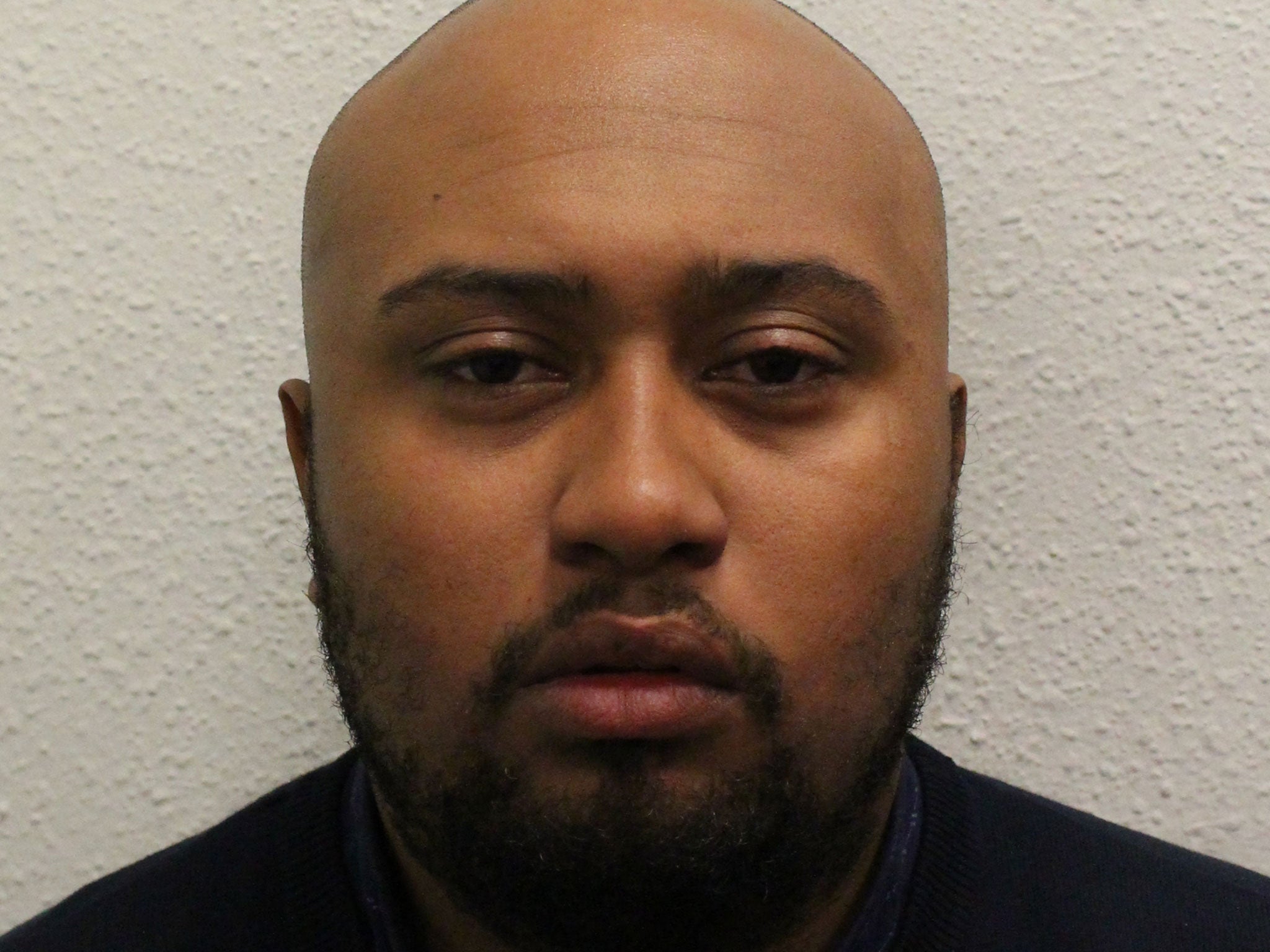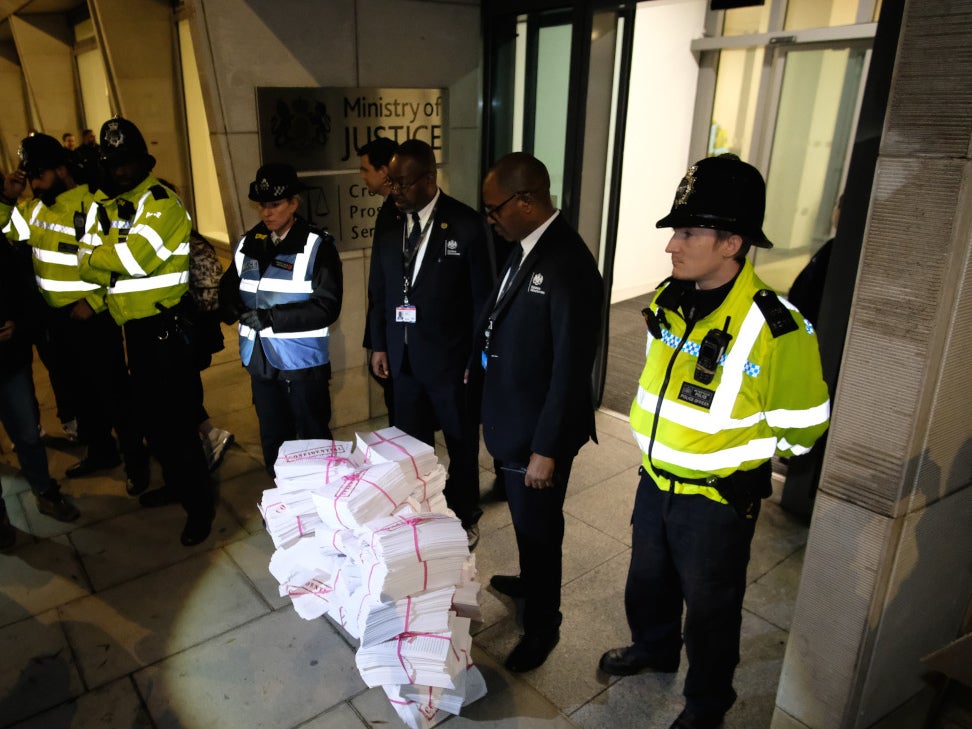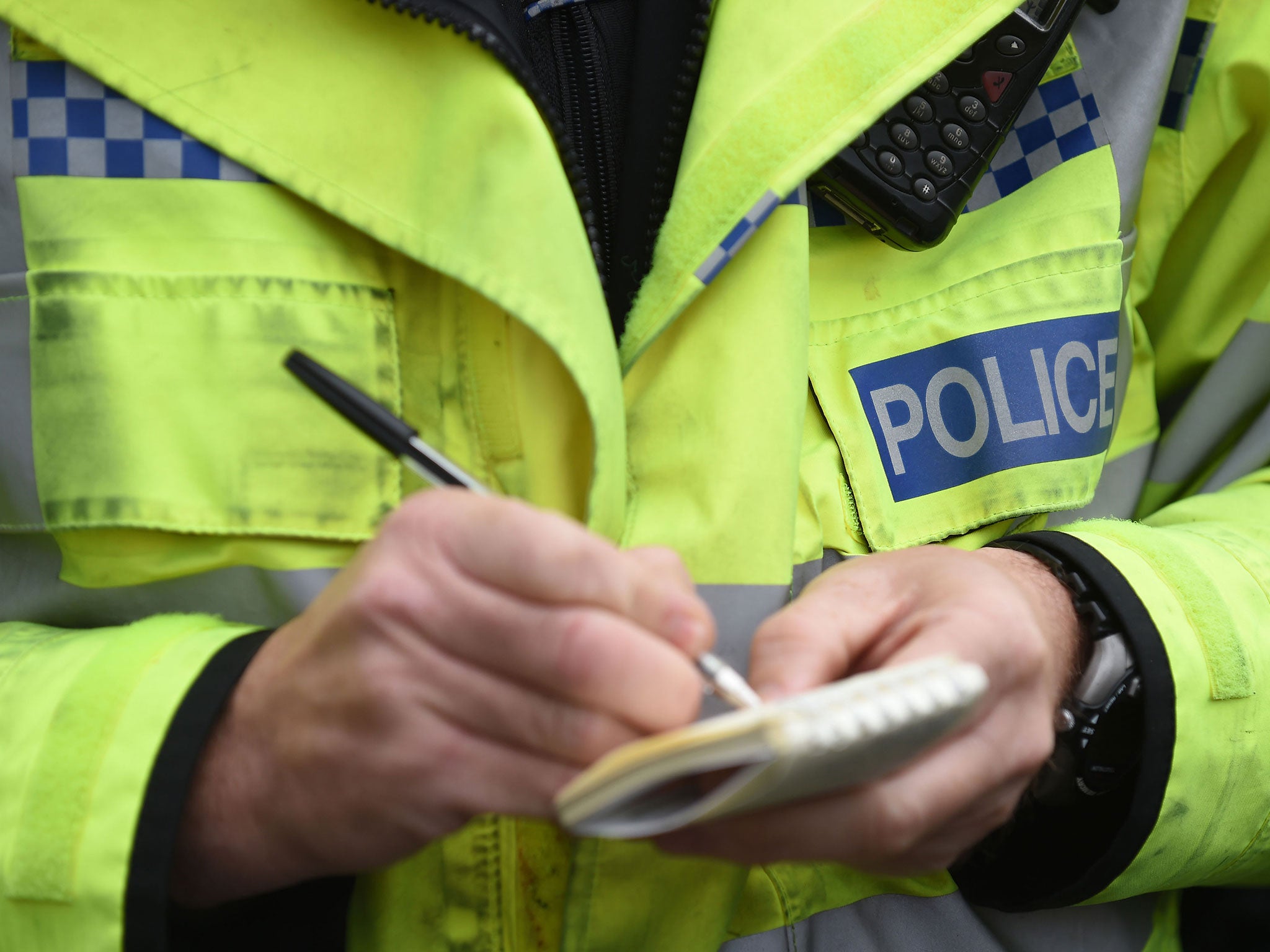Police demanded rape victim's phone and medical records despite identifying attacker by DNA
Exclusive: Metropolitan Police defend ‘standard practice’ but prosecutors say intrusion ‘should not have happened’

Police demanded the mobile phone and personal records of a woman who was raped by a stranger eight years ago – even after identifying her attacker using DNA evidence.
Prosecutors have insisted that only “reasonable lines of inquiry” should be pursued amid a growing scandal over unnecessary intrusion into victims’ personal lives.
But Jane* told The Independent police officers had already identified her attacker when they contacted her in February, after almost eight years of silence over an attack in 2011.
Despite having DNA samples proving the rapist went on to attack another woman in London last year, they allegedly claimed more evidence was needed to charge him.
Jane, now 32, said she was presented with consent forms enabling investigators to access records from her primary and secondary schools, universities, GP and therapists.
When she and her husband asked why the information was needed, the officers allegedly told them: “There have been some recent quite high-profile cases where the Met and Crown Prosecution Service have been really criticised for charging someone without collecting sufficient evidence, which then means the case falls apart in court. So now the CPS are asking for all this stuff upfront before they will charge.”
Jane stressed that she had no contact with the man other than the rape, and did not recognise his name, but said she was told that without the information, the CPS may refuse to charge.
“They asked me at one point whether I had the same mobile phone that I had at the time and I said no,” she added.
“Otherwise they said they would have asked for my phone and wanted my messages.”
After being alerted to Jane’s case by The Independent, the CPS said the demands were “unnecessary intrusion into the victim’s privacy and should not have happened”, but Scotland Yard defended its officers’ actions as “standard practice”.
It is the latest in a series of cases sparking alarm among victims’ advocates after the proportion of reported rapes prosecuted in England and Wales plummeted to 1.7 per cent.
The Independent previously revealed how a man was not prosecuted after sending a Facebook message where he appeared to confess to rape.
Campaigners have accused the CPS of charging more “conservatively” after a scandal over rape cases that collapsed because of newly uncovered messages and photos in 2017.
But the CPS denies any change to official policy, or demanding more data from police.
Jane said her encounter felt like a “fishing expedition” for material to discredit her, adding: “I literally had no idea who the suspect was and it was DNA that linked him to me.
“What could they possibly have found in my school history that could have legitimately cast doubt on whether I was raped by a stranger?”

Then 24, she had been walking home from a bus stop in London in the early hours of the morning when she was violently attacked.
Jane dialled 999 immediately and was taken to a specialist centre where forensic samples were taken, but there was no match to the Metropolitan Police’s database and no witnesses who could identify the man.
But in November last year, the rapist struck again – attacking a 22-year-old woman in Spitalfields.
He was caught and DNA samples matched those taken from Jane, proving her attacker to be the same man.
Jonathan Graden, 29, pleaded guilty to raping both women at Snaresbrook Crown Court and will be sentenced in July.
Jane declined to go to the sentencing hearing because she did not want the attacker to identify her, but later found out that her name had already been given to his defence team.
“I had no idea it had already happened and I immediately felt really unsafe,” she said.
“I’m not sure I would have gone ahead with the case if I’d known that [being named to the defence] was part of the process.
“It made me feel so violated that this man knows who I am, this whole process has felt like one intrusion after another.
“By the plea hearing, I’d pretty much decided that if he pleaded not guilty I wouldn’t go ahead with the trial, because it’s been such an unpleasant process and I knew this was the tip of the iceberg.”
Jane said the investigation had caused fresh trauma and damaged her confidence in the police.

“I’m sure this is a pretty standard experience,” she added. “As a victim, you are the one under suspicion. You are the one who has to prove your good character.”
Claire Waxman, London’s independent Victims’ Commissioner, said the “deeply concerning” case echoed accounts from other rape victims who had sensitive data seized by investigators.
“I have been in touch with both the CPS and the Metropolitan Police to ask for an explanation as to why a victim of a stranger rape attack was pressured to share so much irrelevant personal material – this is clearly not a reasonable line of inquiry,” she added.
“It’s not right that victims are being told they must sign away their rights to privacy in order to access justice, which is why I called for the Information Commissioner’s Office to look into this issue, and I look forward to the publication of that review later this year.”
The government has launched a separate review of the way sexual violence cases are handled across the criminal justice system, which will consider the reasons behind plummeting prosecutions.
In April, the police and CPS unveiled forms to standardise the way electronic devices are requested and explain how data is used.
The former national Victims’ Commissioner, Baroness Newlove, called for victims to be offered free access to independent legal advice so they can make informed consent over their personal information.
Scotland Yard said sexual assault victims are supported by specially trained officers and officers had offered to meet Jane to discuss her concerns.
“All elements of the investigation and lines of inquiry in this specific case are standard practice, regardless of whether the victim and defendant are known to each other,” a spokesperson added.
“It is the duty of the investigating team to find any material that could assist the defence or undermine the prosecution, all of which is disclosed to the court and defence in the interests of serving justice.
“It is the recommendation of the CPS that police conduct a comprehensive review of the case, this includes either direct or indirect communication about the incident.”
A CPS spokesperson said: “Clear guidance on this has been provided to police and prosecutors.
“This appears to be an unnecessary intrusion into the victim’s privacy and should not have happened. Cases like this are exactly why we are working on ways to make sure people who report sexual assaults are treated fairly and more consistently across the country.”
*Victim’s name changed to protect anonymity
Bookmark popover
Removed from bookmarks